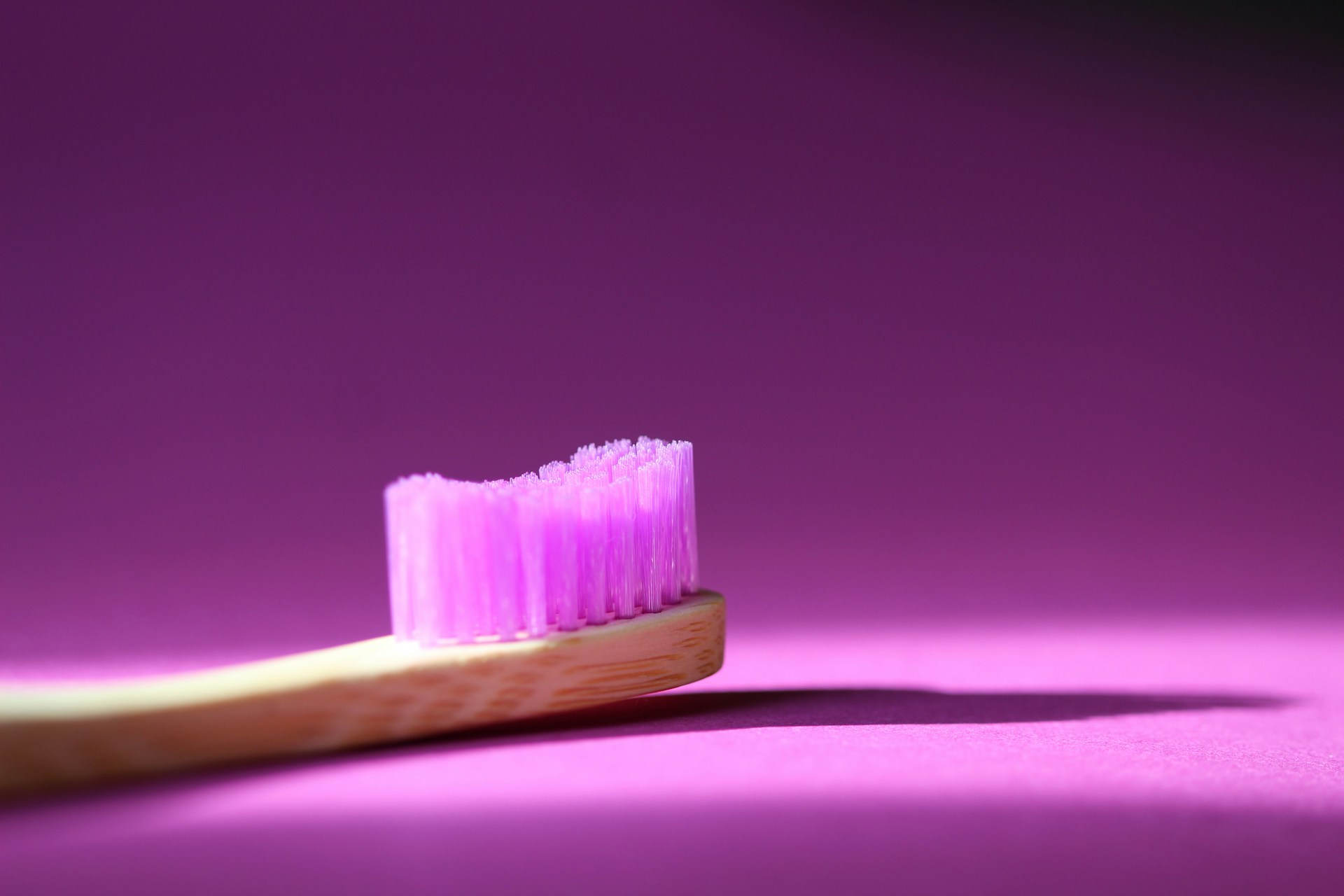
27 Feb Hard vs. Soft Toothbrushes: Why Bristle Strength Matters
We’ve all been there, standing in the toothbrush aisle, wondering, “Does it matter which one I pick?” With so many choices, finding the right toothbrush can feel overwhelming, and you might just be tempted to grab the closest brush in your favorite color. But when it comes to bristle strength, it really does matter which toothbrush you choose—here’s why.
Hard Toothbrush Bristles vs. Soft
Like Goldilocks, you have three options for toothbrush bristle strength: soft, medium, and hard. For about 98% of the population, soft bristles are going to be “just right.” But why? Wouldn’t a harder bristle scrape away plaque better?
Technically, yes—a hard bristle will scrape away more plaque. However, it also scrapes away at your tooth enamel and your gums. Soft bristles can actually remove plaque even more effectively, because they are more flexible and can bend and contour to your teeth. This helps them reach parts of your tooth that a hard bristle brush might miss, and as long as you brush gently, they won’t cause any damage.
Can You Hurt Your Teeth with a Hard Toothbrush?
Yes, damage from over-brushing can last forever. If you use too much pressure, bristles that are too strong, or brush too often, it can have disastrous effects on your oral health.
- Over-brushing creates tears in delicate oral tissues, increasing your risk of infections.
- It wears away at your enamel, exposing the sensitive nerves inside your teeth. This can cause tooth sensitivity and increase your risk of cavities.
- Coupled with improper brushing techniques, over-brushing can cause plaque to become stuck in between teeth and at the gum line, increasing your risk of gum disease.
Does That Mean All Hard-Bristled Toothbrushes Are Bad?
No. While a stiff-bristled toothbrush might not be good for daily use, they do have benefits for some people and in some situations.
- Orthodontics—Sometimes soft bristles can get stuck in metal braces, so your dentist might recommend gently brushing with a hard-bristled brush to avoid damaging the hardware.
- Stain removal—Some teeth whitening treatments will work best if applied with a medium-bristle brush. However, you should always check with your dentist before attempting rough whitening techniques as they could cause damage to delicate teeth.
- Impacted tartar—If your teeth are covered in tartar (the hardened form of plaque) your dentist might recommend several rounds of brushing with a hard-bristled toothbrush before your next dental cleaning. This can help loosen the tartar and make it easier to remove.
- House cleaning—If you want to scrub the grout on your bathroom tiles, a hard-bristled toothbrush is perfect. Just please, don’t use the same toothbrush in your mouth.
Dental Care That Is Always Just Right from Your Dentist in Prescott, AZ
Finding the right dentist can be just as overwhelming as understanding which toothbrush to buy. Here at Hicks Dental Group, we can help with both. Our team of highly educated dentists, hygienists, technicians, and support staff are all here to make your twice-a-year trips to the dentist just right. Contact us today to make an appointment and take another step toward a healthier and cleaner mouth.
Images used under creative commons license – commercial use (2/26/23). Photo by Anne Nygård on Unsplash.

